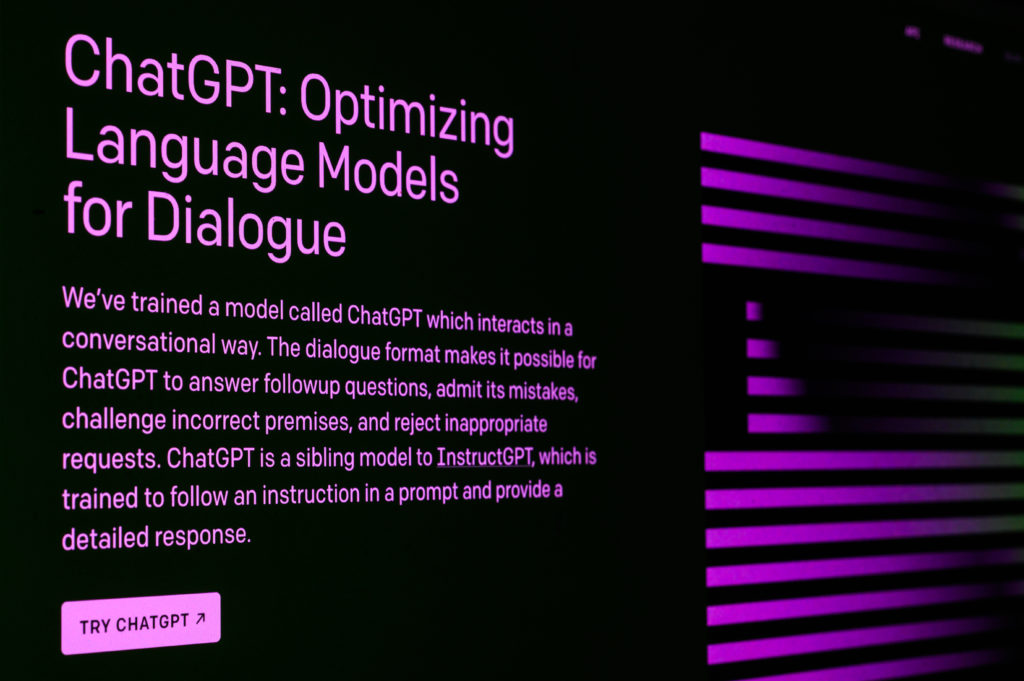
What Should You Do About AI and ChatGPT?
Strategies for integrating AI and ChatGPT into your courses to alleviate the appeal and pressures of academic dishonesty in your online courses.

Strategies for integrating AI and ChatGPT into your courses to alleviate the appeal and pressures of academic dishonesty in your online courses.

This Community of Inquiry (COI) Matrix helps faculty course developers identify how to incorporate COI strategies for selecting content, setting climate, and supporting discourse at each course level based on Bloom’s taxonomy.

Are you concerned about the quality of your recorded videos for your online courses? The Course Video Scoring Rubric below provides you with additional guidance on how to improve the

A new and exciting year is upon us, and with it a chance to revise and refresh our online courses. Your Learning Management System (LMS) regularly updates with new and

You’ve been notified by your department chair or dean you will be teaching an online course that’s new to you in the upcoming semester. The dean/chair knows you have not

A syllabus is a great way to provide students with the course purpose, an overview of assignments, and the rules of engagement that you will be using throughout the term.

The risk of academic dishonesty in the classroom is not unique to online learning. However, online instructors have different tools and tactics to promote academic integrity in a virtual learning

Table of Contents Discussion Boards in Quantitative Education Why focus on discussion boards for teaching quantitative concepts? “College graduates may have bachelor’s degrees in arts or sciences but need to

Category Key: BP = General best practice for all courses LC = Proactive strategy for large courses and growth; best to incorporate early in course design to prevent rework later

A research-based guide that explains accelerated (7-8 week) online courses from the learner and faculty perspective Table of Contents The What What Is Course Acceleration? Course acceleration describes the process

Group work can be very challenging for faculty and students, but with proper planning it can increase quality student interaction and participation in your course. Meaningful group work assessments ask

Case studies are a great way to engage your students in your course materials using real-world problems. The relevance of these lessons better prepares your students to apply their achieved
What We’re Reading & Watching Conferences Articles Artificial Intelligence Ed Tech Podcasts Reports Webinars Conferences SCCE: Higher Education Compliance ConferenceDate:
Creating and maintaining quality online courses can feel overwhelming especially when you are juggling work demands, deadlines, and student requests.
Online learners today have unprecedented access to information. With AI tutors, YouTube explainers, and massive open courses just a click
What We’re Reading & Watching Conferences Articles Artificial Intelligence Ed Tech Podcasts Reports Webinars Conferences NAFSA 2025 Annual Conference &
Designing effective online courses require more than just content expertise—it calls for intentional strategies that foster engagement, relevance, accessibility, and
Live online course design and delivery webinars hosted by the Academic Services and Products team
Developed by Risepoint, Faculty eCommons (FeC) is a social learning ecosystem for faculty across the world to work together to improve online education. FeC contains resources specifically tailored to help online instructors and is maintained by the Academic Services and Products team at Risepoint.
The information provided on Faculty eCommons, including links to third-party websites, does not, and is not intended to, constitute legal advice; instead, all information, content, and materials on this website are for general informational purposes only.
Risepoint
700 North Pearl Street, Suite 600
Dallas, TX 75201
855-593-6050